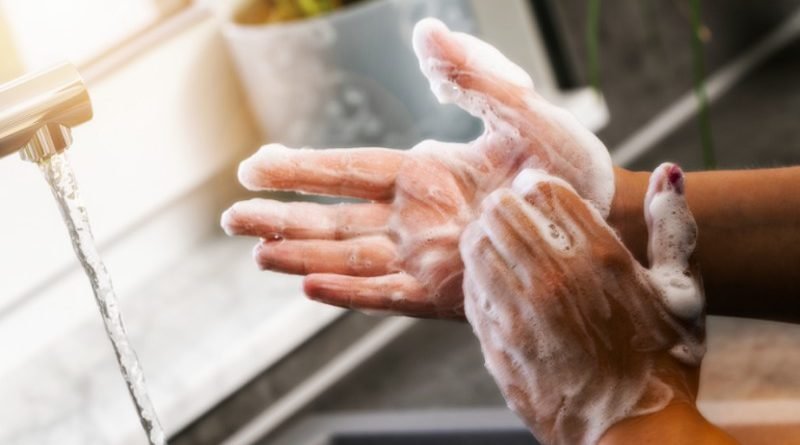Why Hand Hygiene is Important and When to Wash Your Hands
Hand washing is the most important thing we can do to prevent the spread of germs and illnesses like colds and flu.
Whether you’re at home or work, it’s important to remember that hand hygiene should be your first line of defense against sickness — it’s not just about keeping germs at bay for yourself, but for everyone around you as well.
Let’s see why hand hygiene is essential and when you need to wash your hands.
Why Hand Hygiene Is Important
So what are the reasons for hand hygiene? Here are just a few:
- The first reason is obvious, if you don’t wash your hands, you’re going to get sick. Imagine how many people touch the same area that you touch daily with their dirty hands, such as the door handles of your office, elevator buttons, etc. Whether it’s at the gym, a restaurant, or even your job, there are plenty of places where you might be exposed to germs. If you don’t wash your hands after being around these germs and then eat food or touch your mouth, nose, or eyes without washing afterward, those germs can easily enter the body and cause infections such as food poisoning and other illnesses.
- Hand washing is especially important if you have cuts or abrasions on your hands, as these areas are more likely to become infected by bacteria.
- Washing your hands regularly can help prevent the spread of disease from one person to another as well. If someone at your business has a cold or the flu, everyone else must wash their hands frequently so they don’t get sick too.
- However, washing your hands is important not only for your health but also for the safety of your customers and staff. Your staff and customers won’t be encouraged to wash their hands when you don’t provide hand sanitizers, wet wipes, enough soap, etc. This way they’ll be more likely to get sick and you’ll lose your reputation and trust.
When Wash Your Hands?
There are many times when you should wash your hands. These include:
- Before and after eating — This applies to all sorts of foods, including fruits and vegetables, as well as raw meat, fish, or eggs. Always wash your hands before eating or preparing food. This will help ensure that no harmful bacteria get into your meals and make their way into your body, which means less chance of getting sick.
- After using the bathroom — You should wash your hands after using the bathroom to prevent spreading diseases through direct contact with your hands or other people who come into contact with you.
- After handling pets or animals — If you’re going to touch an animal then you must wash up before touching another person again so that they won’t get sick from whatever germs may be on their skin from being around animals like cats or dogs.
- After touching high-touch areas — Imagine how many people touch door handles, flush buttons, elevator buttons, desks, light switches, etc. These high-touch areas are ideal areas for germs to spread because many people touch them with their contaminated hands. So, ensure to wash or at least sanitize (when a bathroom is not at hand’s reach) your hands to prevent bacteria from spreading.
- Before and after handling wounds — It’s risky to treat wounds with dirty hands since they will irritate. So, always wash your hands immediately after treating wounds or injuries. This includes cuts and scrapes, burns, and insect bites.
- Before touching your eyes, mouth, and nose — Always ensure to wash your hands before you touch your mouth because if they are dirty, bacteria can enter your body. And always wash your hands after sneezing or coughing.
Keep in mind that after washing your hands, you need to dry them either with a professional hand dryer or paper towel, since a wet environment is a perfect place for bacteria and germs to thrive.
Tips for Implementing Hand Hygiene
Here are some tips you can follow for employing proper hand hygiene:
- Use posters to remind workers about their responsibility to practice good hygiene and how to do so properly.
- Ensure there is an adequate supply of soap and paper towels (if you use them) to encourage users to wash their hands.
- Provide hand sanitizers at the office, restaurants, cafes, or anywhere you work to promote people sanitizing their hands before and after being exposed to germs. Hand out hand sanitizers to people as they come into your office, and remind them to use them before touching anything that might come into contact with their faces or mouths (like phones, pens, etc.).
- Provide wet wipes at the office to encourage employees to clean their laptops, desks, keyboards, mouse, etc. as well as clean high-touch areas before and after touching them.
- Encourage quick handwashing by placing sanitizers at strategic locations so that staff members can easily access them throughout the day.
- Establish a policy for hand hygiene. Make sure employees know what the policy is and why it’s important.
The goal of hand hygiene is to help prevent the spread of germs and illnesses, which can make everyone feel better. Double-check our blog to understand why hand hygiene is essential and grab some soap to clean your hands.

